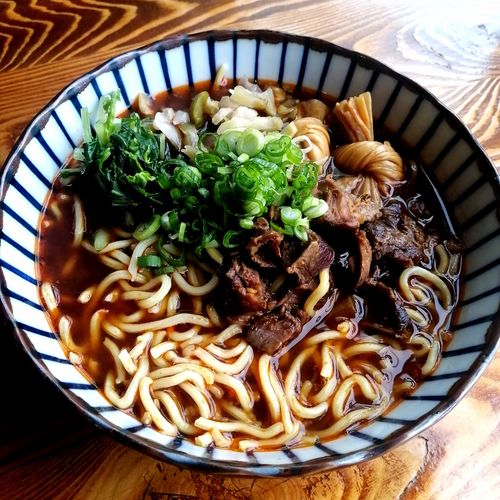It’s time to let plant-based milk shine: An easy way to be more eco-friendly

The likelihood is that you’re already well aware of the dozens of plant based milk alternatives that have arisen over the past few years. They’re everywhere! Especially in Montreal, it’s becoming increasingly common to have your pick of non-dairy options at any given coffee shop, whether it’s almond, soy, oat or rice.
With the deteriorating environment at the forefront of everyone’s minds, Tastet has decided to spotlight the green benefits of using plant based milks over cow’s milk! In addition to the welfare of farm animals, the harmful environmental effects of producing cow’s milk are reason enough to try and minimize your consumption of it.
Agronomists and climatologists break down the impact of milk production into three main categories: water consumption, land use and greenhouse gas emissions. With these criteria in mind, cow’s milk has the largest ecological footprint by far. Joseph Poore’s scientific study at Oxford University compared the environmental impacts of cow’s milk, rice milk, soy milk, oat milk and almond milk in an attempt to determine which type had the lowest environmental impact. The results were shocking.
In terms of water usage, soy milk takes the top spot on the podium with only 28 litres of water required to produce one litre of milk. Runner up goes to oat milk, which needs 48 litres of water to produce one litre of milk. With numbers like those, it’s hard to imagine that these two are the good options, but when comparing them to cow’s milk, there’s no debate. Almond milk rings in at 371 litres of water per litre of milk, rice milk at 270 litres of water per litre of milk, and… wait for it… cow’s milk requires over 600 litres of water to produce one single litre of milk. Unfortunately for almond milk lovers, the water requirement for production is the Achilles’ heel of this popular dairy alternative, as the product ranks very well on the scoreboard for both land use and greenhouse gas emissions.
Poore’s study showed that rice milk, although growing in popularity, is among the most polluting milk beverages to produce. The primary reason for this lies in the method of field irrigation that is necessary to grow the rice, as it releases a large amount of methane into the atmosphere.
What we’re left with is oat and soy milk. Both of these formulas, according to Poore’s findings, are the greenest options when it comes to milk alternatives since they require the least amount of water and land to be produced and emit the lowest levels on greenhouse gases. It is, however, important to note that the rapid development of soybean crops are threatening the health of the Amazon rainforest due to deforestation, as well as its indigenous peoples.
Unfortunately, most studies on plant based milk alternatives leave us high and dry, lacking a conclusive answer to the central question; which type of milk is the most environmentally sustainable option. That being said, the overwhelming conclusion for both Poore and other researchers in the field is that all of these plant based alternatives are greener than cow’s milk.
At Tastet, our motto is “moderation”. We can’t deny the fact that we are hooked on cow’s milk… a splash in our morning coffee, milk in our cereal or as a side with one of our favourite sweet treats. Our approach, therefore, is to encourage our readers to be as conscientious and enlightened as possible so that they can be in the best position to put their own mark on the battle against climate change. The plan of attack may be different for everyone, but regardless, it’s always best to be well informed!
If you’re looking for more information on the subject, here are some sources that we found useful during our research process.
- Reducing food’s environmental impacts through producers and consumers – Joseph Poore
- Which milk should you buy? (Almond, Rice or Oat?) – Our Changing Climate (Vidéo)
- Climate change: Which vegan milk is best? – BBC
- Soy, Almond, Oat Milks: Are They Udder Bull? – Science Vs (Podcast)
© Photo Alison Slattery – Instagram
Written by Samuel Gauvreau Des Aulniers















































































































